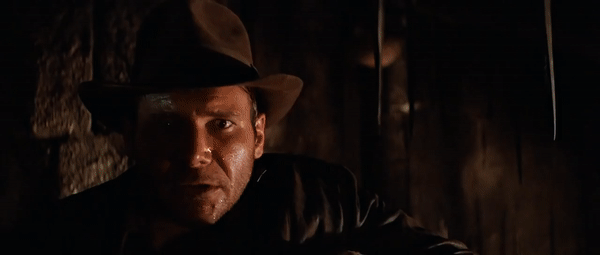 I need to offer a disclaimer as we make this shift from viewing the Bible primarily as a collection of God’s commands to reading and understanding the Bible more as the Story of God. This narrative lens is not going to suddenly give us easy answers to all the issues. We’ll actually find there are fewer rules, the lines are not as black and white, and it leads to more questions and more wrestling and more reflection. It’s not a system. It’s not an owners manual. It’s much more art than science. It can be messy. But I believe understanding the Scriptures as a broad, sweeping, epic story of who God is and what he is doing will help us better connect the dots in the Bible, make us better able to see ourselves in the drama so we can play our parts and say our lines, and enable us to more accurately interpret God’s will.
I need to offer a disclaimer as we make this shift from viewing the Bible primarily as a collection of God’s commands to reading and understanding the Bible more as the Story of God. This narrative lens is not going to suddenly give us easy answers to all the issues. We’ll actually find there are fewer rules, the lines are not as black and white, and it leads to more questions and more wrestling and more reflection. It’s not a system. It’s not an owners manual. It’s much more art than science. It can be messy. But I believe understanding the Scriptures as a broad, sweeping, epic story of who God is and what he is doing will help us better connect the dots in the Bible, make us better able to see ourselves in the drama so we can play our parts and say our lines, and enable us to more accurately interpret God’s will.
“All Scripture is God-breathed and is useful for teaching, rebuking, correcting, and training in righteousness, so that the child of God may be thoroughly equipped for every good work.” ~2 Timothy 3:16-17
A lot of us have taken passages like the above and developed a theology about the Bible, but not a biblical theology.
We’ll read Jonah and spend four weeks researching whether a human can live inside a fish for three days and never once think about God. The story is about God and what he is doing, not about the whale and what he or she can or cannot do.
We’ll argue about Paul’s words concerning divorce and remarriage and look for legal loopholes instead of dwelling on the covenant loyalty of our God who intends our marriages to reflect and witness to his perfect love and faithfulness.
Esther is not about “you need to be more courageous.” If that’s the point of Esther, it may as well be “you need to be prettier,” too. The point of Esther is that our God is at work to redeem everything and he uses every opportunity – even our darkest moments in exile when we feel weak and powerless and trapped in circumstances beyond our control – to save us and redeem us. We are not forgotten. We are never out of God’s reach or too far away from his salvation. That’s the story.
For a long time, we have read and studied the Bible looking for commands, examples, and necessary inferences. We no longer assume that this method works consistently, if at all, or if it’s even healthy. Does anybody really believe that in the grand, sweeping narrative of Scripture, the strange fire of Nadab and Abihu belongs in a central and controlling place? Reading the Bible as a book of laws to be obeyed or as a constitution to be defended is what led to some Christians affirming that slavery must be okay because the Bible doesn’t explicitly prohibit it.
Reading the Bible as a system of laws, people take every single verse that mentions slavery and notice that none of the verses condemns slavery as sinful or prohibitive. God didn’t say it’s a sin, so it must be alright as long as you don’t violate your conscience. Yes, Christians have done this in the past, and some Christians still do. Yes.
Reading the Bible as the story of who God is and what he’s doing in Jesus Christ makes it obviously clear that all women and men are created equal in the image of God and that all people belong to each other as complete equals. Slavery is a result of the Fall; it’s sin. Jesus destroyed all the barriers between people at the cross. In Christ, there is no slave or free, male or female, Jew or Greek – we are one and slavery is a reprehensible evil.
That’s the difference. What’s the story?
The beatitudes are not telling us to be better peacemakers or to grow in humility. It’s not that you have to develop these virtues in order to receive the blessings. Why do we try to make mourning/weeping sound good or desirable? Well, it’s mourning over sin, right? I don’t know, the text doesn’t say that. The point of the beatitudes is to express how radically present the Kingdom of God is, even and especially among those who are grieving. People in their brokenness and grief often feel like they’re left out of God’s blessings. But Jesus is telling us, “No! God’s Kingdom is bigger and better than we ever dreamed. And it’s here right now!”
What God is doing is a story. It’s a narrative. When we see the pattern of God’s Kingdom in Creation and how it went wrong, when we understand how everything God is doing through Jesus Christ is to restore our righteous relationships with him, with one another, and with all of nature, we can much more easily, consistently, and accurately interpret his will and purposes for us.
Peace,
Allan






Recent Comments